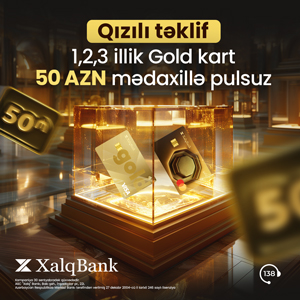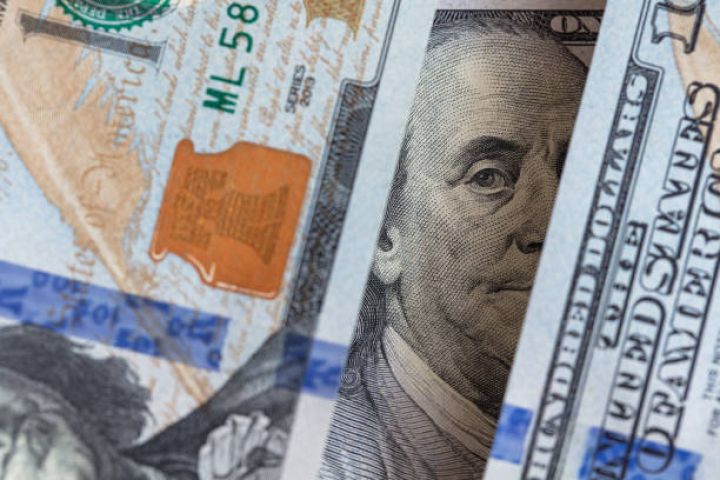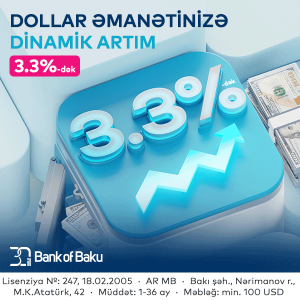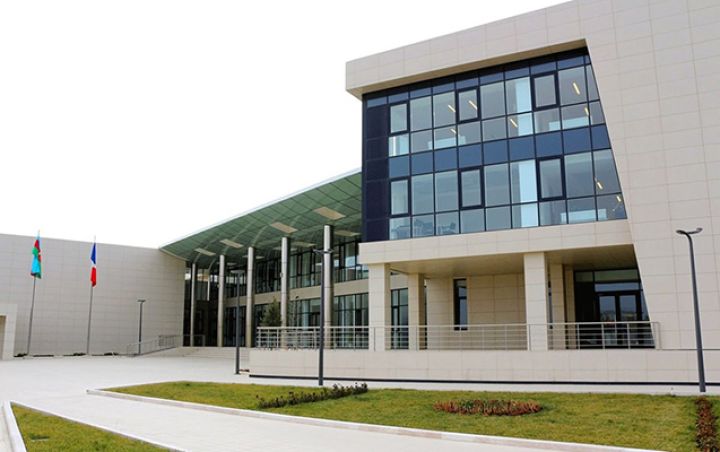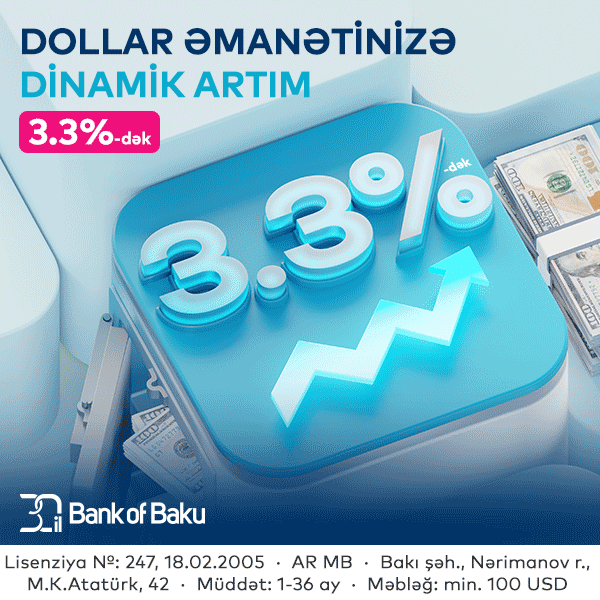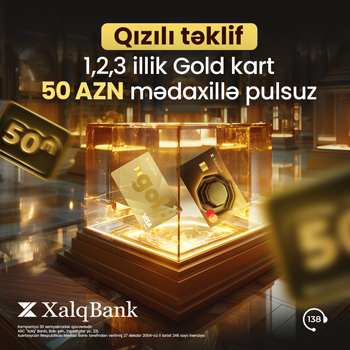Moody's: Manatın üzərində təzyiq yenidən bərpa oluna bilər

Azərbaycan Beynəlxalq Bankının borclarının restrukturizasiyası nəticəsində yaranacaq birbaşa dövlət büdcəsi xərcləri, bu ilin əvvəlindən itirdiyi dəyərinin bir hissəsini bərpa etmiş Manatın üzərində uczlaşma təzyiqini yenidən bərpa edə bilər.
“Marja” xəbər verir ki, bu barədə “Moody's” beynəlxalq kredit reytinqi agentliyinin açıqlamasında bildirilir.
“Manatın daha da ucuzlaşması hökumətin və bankların valyuta borcunun həcmini artıracaq və kövrək maliyyə sağlamlığına malik olan Azərbaycan banklarının daha da zəifləməsinə gətirib çıxaracaqdır”,- açıqlamada deyilir.
OFİS LƏVAZİMATLARI TOPDANSATIŞ QİYMƏTLƏRİNƏ!
Xəbər verdiyimiz kimi, Moody's Investors Service (Moody's), Azərbaycanın "neqativ" proqnozlu "Ba1" reytinqini yenidən aşağı salmaq üçün izləməyə götürüb. Bu barədə "Marja"ya Moody's-dan bildirilib.
Azərbaycanın kredit reytinqi 29 Aprel 2016-cı ildən "Ba1" səviyyəsindədir.
Reytinqin daha da aşağı salınması üçün nəzarətə götürülməsi Azərbaycan Beynəlxalq Bankının borcunun dövlətə ötürülməsidir. Moody's hesab edir ki, bu addım böyük maliyyə xərclərinə gətirib çıxara, dövlətin maliyyə vəziyyətini pisləşdirə və Azərbaycanın iqtisadi inkişafının ləngiməsinə səbəb ola bilər.
Kredit reytinqinin daha da aşağı salınması Azərbaycana investisiyaların daxil olmasını ləngidə, Azərbaycan üçün kredit faizləri yüksələ bilər. Belə mənfi hallar Manatın məzənnəsinə də mənfi təsir edə bilər.
MAŞINLAR ƏLDƏN GETMƏMİŞ BU FÜRSƏTDƏN YARARLANIN!
Azərbaycan Beynəlxalq Bankı xarici borclarını ödəyə bilmədiyi üçün Mayın 10-də defolt (müflis) elan edilib. Bankın təxminən 3,3 milyard dollar xarici borcu dövlətə ötürüləcək.
Beynəlxalq Bank böyük zərər içindədir. Səbəb Manatın ucuzlaşmasıdır.
Hökumət Beynəlxalq Bankın borcları üçün istiqraz buraxaraq kreditorlara təqdim edəcəyini açıqlayıb. Moody's agentliyi həmçinin gözləyir ki, hökumət Bankın kapitalını da qaldırmaq üçün əlavə maliyyə ayıracaqdır. 3,3 milyard dollar xarici borc və Bankın kapitalının artırılması üçün əlavə vəsait ölkənin maliyə görünüşünü pisləşdirə pilər.
Beynəlxalq Bankın müflis olması və borclarını dövlətin üzərinə götürməsi digər banklar üçün maliyyə vəsaitinin mövcudluğunu ortadan qaldırır. Əgər digər banklarda da vəziyyət çətinləşərsə onların xilası çətinləşəcəkdir. Belə olan halda əmanətçilər pis vəziyyətdə qala bilərlər.
Həmçinin büdcə vəsaitinin bir hissəsinin Beynəlxalq Bankın borclarına yönəldilməsi dövlət investisiyalarının təxirə salınması ilə nəticələnə bilər. Belə olan halda iqtisadiyyatın inkişafı da ləngiyə bilər.
Moody's gözləyirdi ki, ÜDM 2016-cu ildə 3.8% azalmadan sonra 2017-ci ildə 1%, 2017-ci ildə isə 1.8% artım qeyd edə bilər. İndi agentlik bu proqnozların reallaşacağına da şübhə ilə yanaşır.
Moody's hesab edir ki, Azərbaycanını bank sektorunda ödəmə vaxtı keçmiş kreditlərin Həcmi yüksək olaraq qalır və kreditlərin ümumi həcminin 30%-nə bərabərdir.
Moody's qeyd edir ki, yaranmış vəziyyət Manatı təzyiq altında saxlayır.
Moody's Investors Service (Moody's) has today placed Azerbaijan's Ba1 long-term issuer rating and senior unsecured rating on review for downgrade. The rating outlook had been negative since April 29, 2016.
The decision to initiate a review for downgrade was prompted by the unexpected announcement of a restructuring plan for the country's largest bank, state-owned International Bank of Azerbaijan (IBA, Caa3/on review for downgrade), which led to IBA's default on 10 May. While the intention to restructure the bank was announced in 2015, the mode of restructuring outlined last week was unexpected and could imply that Azerbaijan's credit profile is weaker than we had previously expected.
The government has announced plans to issue new foreign-currency denominated bonds and assume most or all of IBA's foreign-currency loans. Moody's also expects the government will have to provide additional funding to raise IBA's Tier 1 capital adequacy ratio. Despite an injection of another AZN600 million into the bank in January 2017, IBA still has negative equity.
The review will allow Moody's to assess whether the IBA restructuring announcement, shortly after significant financial support had been provided, indicates a higher level of financial stress than we previously assumed, which could lead to larger fiscal costs and worsen the government's debt profile beyond our previous expectations.
The review will also assess whether greater financial stress is likely to further delay Azerbaijan's economic recovery beyond our previous forecasts.
Moody's plans to conclude the review within 90 days of its announcement.
In a related rating action, Moody's has also placed on review for downgrade the Ba1 senior unsecured foreign currency rating for Southern Gas Corridor CJSC.
Azerbaijan's long-term local-currency bond and bank deposits country ceilings remain unchanged at Ba1. The long-term foreign-currency bond ceiling remains unchanged at Ba1 and the long-term foreign-currency bank
deposits ceilings remain unchanged at Ba2.
RATINGS RATIONALE
RATIONALE FOR THE REVIEW FOR DOWNGRADE
HIGHER FINANCIAL STRESS COULD RAISE GOVERNMENT DEBT ABOVE PREVIOUS
EXPECTATIONS
The unexpected announcement of IBA's restructuring plan implies that the financial health of the bank and the banking system in general may be weaker than we had previously assessed, raising the possibility of higher
fiscal costs for the government of restructuring the banking system. Whilst we previously expected that government debt was at or near its peak, it is now possible that the government debt burden rises materially
further.
Despite a relatively small banking system overall, with banking assets amounting to 52% of GDP in 2015, Azerbaijan's banking restructuring is likely to lead to large fiscal costs by historical and international standards. Already, the government's prior support to IBA combined with the impact of the depreciation of the manat currency (AZN) has contributed to the near quadrupling of its gross government debt-to-GDP ratio to 40% in 2016 from 11.2% in 2014.
Currency and maturity mismatches account for substantial losses for IBA and other Azerbaijani banks, which were hit hard by the collapse of oil and gas prices and the resulting depreciation and recession. Despite the
shift of AZN10 billion (16.5% of 2016 GDP) in IBA's non-performing loans (NPLs) to a 'bad bank' (Aqrarkredit) owned by the central bank over the past two years, Moody's estimates that system-wide NPLs remain high at
30% of total loans.
Beside the direct fiscal costs of restructuring, the exacerbation of financial distress in Azerbaijan could renew downward pressure on the manat exchange rate, which had regained a small part of its lost ground since January. The Azeri government's direct and guaranteed debt is predominantly denominated in foreign currency and the economy and banking system are significantly dollarized, such that a further depreciation of the exchange rate would both raise the value of the government's foreign-currency debt and lead to additional weakness in the already fragile financial health of Azerbaijan's banks, raising contingent liability risks further.
Relative to peers, the Azerbaijan government's debt burden is not onerous at present. However, should the cost of IBA restructuring be combined with exchange rate depreciation in the context of very slow economic
growth, the debt ratio could rise significantly.
HIGHER THAN EXPECTED FINANCIAL STRESS ALSO INCREASES UNCERTAINTY ABOUT
THE MEDIUM-TERM GROWTH PROSPECTS
Azerbaijan's Economic Strength is low, reflecting the economy's
dependence on hydrocarbons. In an era of "low for longer" oil and gas
prices, the economy is not likely to grow quickly in the next few years.
Whereas rapid GDP growth in the years from 2005-2013, at 11.4% per year
on average, helped keep the debt that the Azeri government took on to
improve the cost competitiveness of its hydrocarbons production,
Azerbaijan's capacity to repay new investment through strong revenue
growth is now much lower.
Moreover, even when the new gas pipeline to Turkey comes on stream in 1-3
years, allowing Europe to diversify its supply of gas away from Russia,
and production starts at the Shah Deniz 2 development gas field in
2018-19, Azerbaijan will have to compete with sources of gas supply to
Europe from other price-competitive suppliers.
Previously, Moody's had expected that GDP would contract by 1% in 2017,
after a 3.8% fall in 2016, and then register positive growth of 1.8% in
2018. However, part of the support for GDP growth was expected to come
from a resumption of credit extension by healing banks. In light of
IBA's situation and the likelihood that more banks will need to undergo
rehabilitation, the restoration of credit growth as well as economic
recovery is likely to be delayed.
The review will assess whether the decision to allow IBA to default
indicates a higher level of financial stress across Azerbaijan's
financial sector than was previously expected, and the implications of
that for medium-term growth prospects. Significant and prolonged stress
in the banking sector may postpone the economic recovery further. Credit
availability in the economy contracted by 24% in 2016. IBA's default may
further undermine the availability of funding for the country's banks and
the provision of credit. It may also indicate a higher level of financial
stress in the economy than Moody's previously thought.
Azerbaijan has very large fiscal reserves, worth roughly 90% of GDP at
the end of 2016, which could provide a significant buffer to economic
shocks and constitute material support to the sovereign rating. At this
stage however, the authorities' willingness and capacity to deploy these
financial means to supporting the economy is uncertain.
WHAT COULD MOVE THE RATING DOWN
At the conclusion of the current review for downgrade, Moody's could
downgrade Azerbaijan's government rating if the rating agency concluded
that the increase in government debt resulting from the severe financial
stress at IBA and other banks in the system would lead to a material
weakening of Azerbaijan's fiscal strength beyond its current expectations.
Moody's could also downgrade the rating should it conclude that the
effect of the banking sector restructuring and, more generally, the
impact of the oil shock on the economy durably undermined Azerbaijan's
economic strength to levels below its current assessment.
WHAT COULD LEAD TO A RATING CONFIRMATION AT THE CURRENT LEVEL
Moody's would confirm Azerbaijan's Ba1 government rating should it
conclude that the banking system stress is not likely to meaningfully
raise the government's debt burden, nor significantly constrain economic
growth potential beyond what it currently anticipates.
GDP per capita (PPP basis, US$): 17,439 (2016 Actual) (also known as Per
Capita Income)
Real GDP growth (% change): -3.8% (2016 Actual) (also known as GDP Growth)
Inflation Rate (CPI, % change Dec/Dec): 15.6% (2016 Actual)
Gen. Gov. Financial Balance/GDP: 0.3% (2016 Actual) (also known as Fiscal
Balance)
Current Account Balance/GDP: -3.6% (2016 Actual) (also known as External
Balance)
External debt/GDP: 35.1% (2016 Actual)
Level of economic development: Low level of economic resilience
Default history: No default events (on bonds or loans) have been recorded
since 1983.
On 16 May 2017, a rating committee was called to discuss the rating of
the Azerbaijan, Government of. The main points raised during the
discussion were: The issuer's economic fundamentals, including its
economic strength, have not materially changed. The issuer has become
increasingly susceptible to event risks.
Müştərilərin xəbərləri

“Global Finance” Kapital Bank-ı “Süni intellektin rəqəmsal transformasiyada ən yaxşı istifadəsi” mükafatına layiq görüb

“ConsultsPlus”dan yeni layihə: “Risk əsaslı yanaşma” kiçik və orta bizneslər üçün daha əlçatan olacaqdır
SON XƏBƏRLƏR
- 14 saat əvvəl
-
15 saat əvvəl
“Bakcell”in Baş İcraçı Direktoru Xankəndidə jurnalistlərlə görüşüb
- 18 saat əvvəl
-

-
18 saat əvvəl
Tanınmış şampunlar və qabyuyan məhsulların saxtası Keşlədə istehsal olunurmuş
-
19 saat əvvəl
Bakı Fransız Liseyinin ləğv olunması haqqında qərar qəbul edilib
-
22 saat əvvəl
Bakı-Ağstafa-Bakı marşrutu üzrə əlavə qatar reysləri təyin edilib
-
22 saat əvvəl
Azərbaycanda tikinti sahəsində agentliyin və ya komitənin yaradılması təklif olunur
- 22 saat əvvəl
- 22 saat əvvəl
-
22 saat əvvəl
Rabitəbank müştəriləri biznes hesablarını banka gəlmədən aça bilərlər!
- 1 gün əvvəl
- 1 gün əvvəl

Azərbaycanda tikinti sahəsində agentliyin və ya komitənin yaradılması təklif olunur

Bank Masallıda filialını açdı

Azərbaycan neftinin son qiyməti
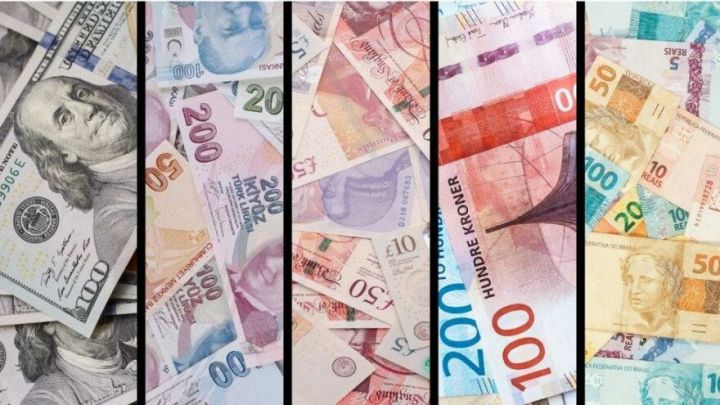
Rəsmi məzənnələr açıqlandı

Yaşıl gübrələrlə bağlı əməkdaşlıq Sazişi imzalanıb
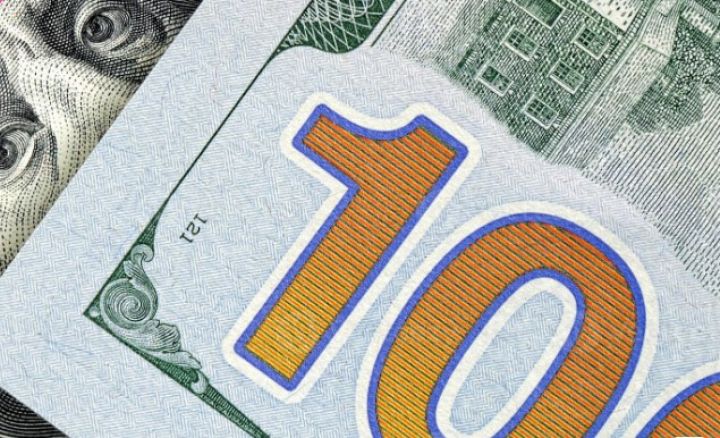
Sabahın rəsmi məzənnəsi müəyyən olunub
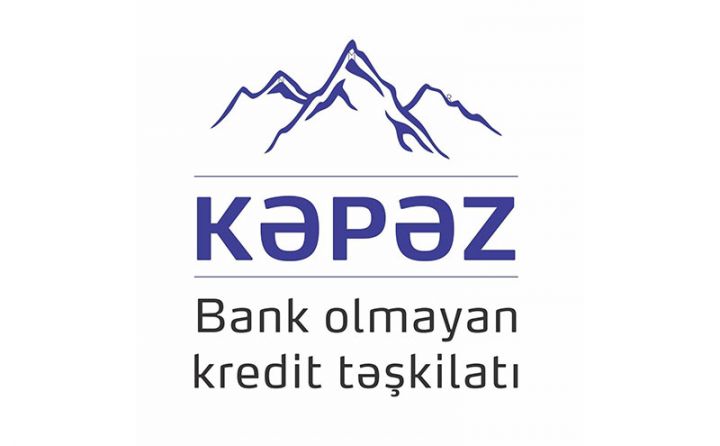
"Kəpəz" BOKT illik 14 faizlə borc alır

MG MOTORS AZƏRBAYCAN-dan “XÜSUSİ QİYMƏT” kampaniyası
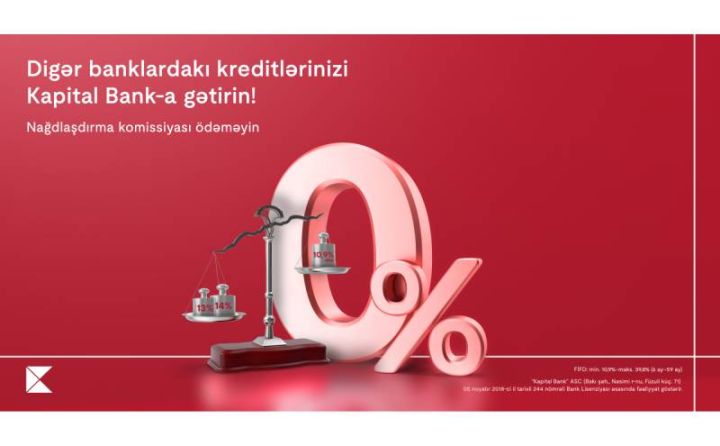
Kreditlərinizi Kapital Bank-a gətirin nağdlaşdırma komissiyası olmadan kredit əldə edin













